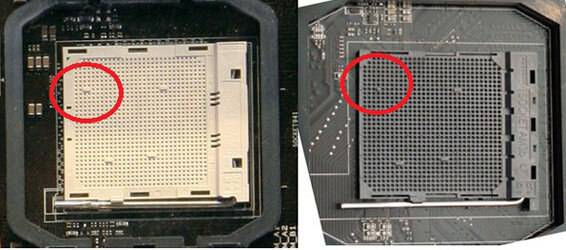sure you can. most AMD chips are backward compatible at least 1 socket generation (and in some rare cases 2) assuming the MB manufacturer supplies the required bios update. while you cannot plug an AM3 chip into an AM3+ MB, you can plug an AM3+ chip into a properly supporting AM3 MB. search around, you'll see a number of AM3 MBs supporting in bios updates AM3+ FX chips.
Some of the first gen AM3 PhII chips could even plug into and even be overclocked in an AM2 mb... so yes... AMD most certainly is backward compatible.
thanks for clipping out the afaik. because "as far as i know" doesnt mean i know much lol i havent dabbled with amd since my 700mhz k6-3d.
and thanks for the info i wasnt aware of this.
so there are a few boards that you can go backwards with, and iirc it was pretty buggy for the most part because amd did not officially support am3+ cpu's in am3 motherboards. things like fan pwm signals not working, and power saving features not working because of the temp sensors.
and for the most part idk if it matters that you can put an am3 cpu in an am3+ chances are if you buying the motherboard you are going to be getting amd am3+ cpu the majority of people dont just upgrade their montherboard.
they are only backwards compatible under pretty limited circumstances. the companies themselves dont know their board will be compatible with the next gen of processors just random boards will happen to work when the time comes, even then its not supported by amd.
and if we hold those standards to intel, they are just as backwards compatible. such as the switch from sandy to ivy, some boards needed a bios flash but thats two series that work on the same socket, and were intended to be from intel.
all i was pointing out in the post you chopped/qoted was that the backwards compatibility is not a thing that is better than intel. if anything intel intends their socket compatibility and amd accidentally does it.
in short i was saying that they were equally superior in backwards compatibility.
edit: sorry took a while to hit submit got side tracked at work

